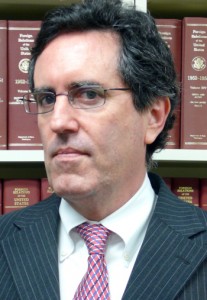
Using Mobile Phones to Engage Citizen Scientists in Research
E. A. Graham, S. Henderson, and A. Schloss
[Abstract] [PDF]
Mobile phone–based tools have the potential to revolutionize the way citizen scientists are recruited and retained, facilitating a new type of “connected” citizen scientist—one who collects scientifically relevant data as part of his or her daily routine. Established citizen science programs collect information at local, regional, and continental scales to help answer diverse questions in the geosciences and environmental sciences. Hundreds of thousands of citizen scientists contribute to recurring research projects such as the Audubon Society’s annual Christmas Bird Count, which drew more than 60,000 observers in 2009, or the U.S. Environmental Protection Agency’s Volunteer
Monitoring program, through which trained volunteers improve the monitoring of water quality in lakes and streams across the United States. These programs have relied on traditional recruiting techniques and written observations. New methods for engaging participants through technology, specifically, mobile applications, or apps, provide unprecedented ways for participants to have immediate access to their own and others’ observations and research results.
Phi Beta Iota: Changes to the Earth that used to take 10,000 years now take three. Real-time science is no longer a dream, it is a necessity. Governments and corporations as well as universities appear to be largely out of touch with the possibilities, but we do note that for years Taiwan has been paying a bounty to citizens who capture polluters in the act with a snapshot and GPS location.



